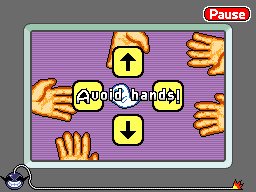About the author
Joakim Achren
General Partner @ F4 Fund, Co-Founder @ Next Games (acquired by Netflix), the most helpful investor on your cap table 🫡

Journal 4 Joakim Achren April 15

After receiving considerable feedback on my consumer app piece from March, I am compelled to address the growing interest in incorporating TikTok-like elements into gaming experiences and vice versa. With TikTok dominating social media, game developers are seeking ways to bring gaming into this new realm of content consumption.
But first, let’s break down the factors that make TikTok successful.
TikTok’s success lies in its doom-scrolling interface, which doesn’t require a social graph. Instead, the algorithm focuses on watch time; the longer you view a specific type of video, the more of those videos you’ll be served in the future. This platform couldn’t have existed before now—it’s tailored for a generation that grew up with smartphones and touchscreen interfaces.
“In previous eras, most of the spoils went to the platform’s earliest adopters – mining value gets harder as the platform ages. TikTok, on the other hand, promotes all content regardless of who made it or how many followers [social capital] they have.”
— Casey Newton
TikTok’s primary driver of success is its mobile-native nature. Unlike other social networks that emerged during the Web 2.0 era, TikTok was designed for the personal, highly accessible nature of mobile devices. The key is to minimize friction when consuming content, and short-form video has unlocked a new era of algorithmic entertainment.
As Blake Chandlee, a former Facebook employee and now a TikTok executive, noted in a recent interview:
“Facebook is a social platform,” Blake Chandlee, TikTok’s president of global business solutions, told CNBC in an interview on Thursday. “They’ve built all their algorithms based on the social graph. That is their core competency. Ours is not.”
“We are an entertainment platform,” Chandlee said. “The difference is significant. It’s a massive difference.”
With all this said, the question remains: how can developers effectively “TikTok-ify” their games? Understanding what makes TikTok successful and applying those principles to gaming experiences might unlock new dimensions of engaging entertainment for users.
Aside from their shared goal of entertaining users, there are other similarities between TikTok and gaming. Consider TikTok as a slot machine: you pull the lever and await the outcome. You may be pleasantly surprised or left unsatisfied, prompting you to continue pulling the lever in search of gratification.
Picture this: You’re pulling the lever of a slot machine, but you’re not gambling with real money. Instead, you’re risking your time and attention. What makes this so addictive? A quote from a piece on the psychology of slot machines reveals the nature of gambling.
Slot machines utilise principles of operant conditioning to reinforce player behaviour and encourage continued play. Variable reinforcement schedules, where wins are delivered unpredictably and at varying intervals, are particularly effective at keeping players engaged and motivated.
Additionally, the use of sound effects, visual cues, and celebratory animations following a win creates a sense of achievement and reward, triggering the release of dopamine in the brain’s reward pathways and reinforcing the desire to play again.

What makes slot machines irresistibly addictive? It’s their blend of rapid gameplay, vivid graphics, and the promise of enticing prizes. Now, think about TikTok. TikTok thrives on short bursts of engagement, like a quick game on your mobile phone while waiting in line at Starbucks.
Consider HypeHype, a recent success in the Finnish games industry. This platform lets you swipe up to play the next hyper-casual game and even create your own game to share with others. With its similarities to TikTok – swiping up for more, liking, favoring, and algorithmic possibilities – we wonder if this is where TikTok and gaming truly converge.
As I’ve been researching for this piece, I’m reminded of WarioWare, the famous Nintendo game featuring minigames that last only a few seconds. To score well, players must quickly understand and excel in each challenge.
But what challenges does “TikTokifying” gaming present?
The first challenge is creating interactive entertainment that can be doomscrolled – an algorithm that selects engaging content based on your previous interactions. How do we develop an algorithm favoring doomscrolling gaming content? Perhaps by emulating the difficulty curves mobile casual game developers, like King, used in the 2010s: escalating challenges followed by satisfying drops.
However, a second challenge arises: Why do we interact with entertainment? Interactive entertainment exists because people crave a sense of progression, often driven by various motivations. One core motivation is mastery – improving skills or knowledge to achieve goals.
To successfully merge TikTok and gaming, developers must address these challenges: crafting an algorithm that encourages doom-scrolling while also providing users with a sense of progression and mastery, even as players will inevitably move from one game to another.
WarioWare’s metagame solution could offer an answer by embedding points collected from minigames into an overarching progression graph outside of the minigames. As mobile gaming has evolved over the last 15 years since the introduction of the App Store and the dominance of free-to-play, we’ve seen the same titles topping charts for over a decade. What makes these mobile games so successful? They’re designed for long-term consumption, spanning decades, where mastery, content, and excitement are bundled into a multi-decade experience.

Introducing a TikTokified gaming experience poses further challenges in terms of maintaining interest. Balancing these factors becomes crucial. Consider who primarily uses TikTok today: Gen Z and Gen Alpha, generations that grew up with mobile phones in their hands. These gamers favor engaging, high-fidelity games like Fortnite and Brawl Stars that reward players often through staged progression. How can this be translated into a TikTokified experience when lasting gaming experiences hinge on high fidelity and immersiveness?
Doom-scrolling may be immersive, but as I previously mentioned, it resembles a slot machine experience—a format that has historically not fared well outside of casino simulations.
And why should a game exist on TikTok? The core reason is a distribution advantage over other platforms that don’t have a billion monthly active users to tap into. However, mobile devices already offer unparalleled reach through app stores, which device manufacturers currently dominate.
As we venture into the age of non-OEM app stores, like the Epic App Store and a potential Steam App Store for mobile, we might witness changes reminiscent of Facebook Canvas’s situation in the late 2000s. Back then, people were drawn to gaming on the platform because of real-life interactions with distant friends who sent them gifts in games like Farmville. This social connection was a powerful motivator and could create viral growth like no other.
TikTok’s distribution advantages face a challenge due to the absence of a social graph that could act as a unique adhesive for gaming. In TikTok, social ties are less prominent; the algorithm shows you what you need to see.
However, many seem to push towards non-social content. In recent years, the “For You” view has gained immense popularity across major Web 2.0 era social media platforms, including Twitter (now known as X), Facebook, and others following suit. Even LinkedIn may soon introduce a “For You” feature. As the social graph loses interest, this is the predicament Web2 networks face.
So, how do we integrate the “For You” feed into gaming? Algorithms will likely play a crucial role, but only time will tell.
Transforming gaming for platforms like TikTok presents numerous challenges for developers. Successfully adapting to this new frontier of consumer behavior requires innovative solutions that maintain player engagement while offering meaningful progression and rewards.
Unlocking new go-to-market will be key—leveraging unique distribution advantages that will become available.
We are keen to speak with founders who are exploring this space. Visit our website at http://f4.fund and contact us.
F4’s portfolio company, Benjamin, is building a new kind of app and is looking for talented product managers. Apply here! Mention that Elite Game Developers sent you.

About the author
General Partner @ F4 Fund, Co-Founder @ Next Games (acquired by Netflix), the most helpful investor on your cap table 🫡
Please login or subscribe to continue.
No account? Register | Lost password
✖✖
Are you sure you want to cancel your subscription? You will lose your Premium access and stored playlists.
✖